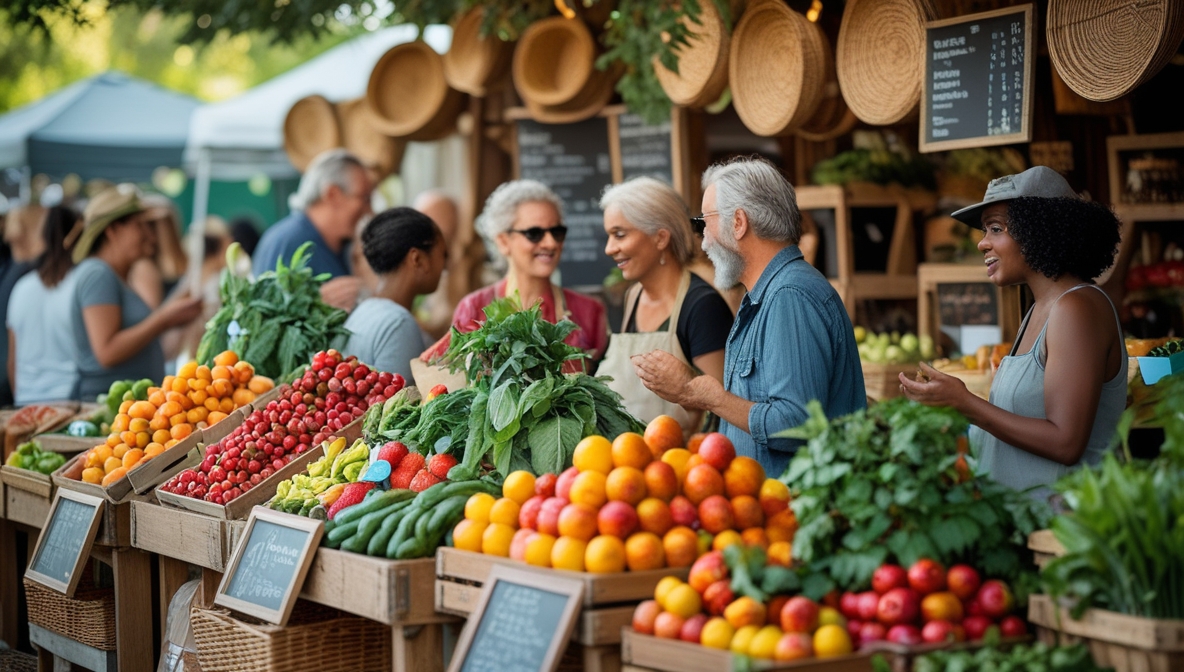Local farmers markets do support sustainable living—by reducing environmental impact, promoting community health, and reinforcing local economies. They make sustainability tangible and accessible every week, from the sidewalks of Cedar Rapids to the stalls of Iowa City.
1. Shorter Supply Chains Mean Fewer Emissions
Local markets eliminate thousands of food miles. Produce travels from farm to table within hours, not days or weeks. This slashes fuel consumption, packaging waste, and refrigeration needs. Fewer trucks on highways mean less pollution in the air and less wear on infrastructure.
2. Seasonal Eating Supports Natural Growing Cycles
Farmers markets offer what’s in season—nothing more, nothing less. This encourages diets aligned with nature’s rhythms, reducing reliance on energy-intensive storage or transportation. No tomatoes in December? Try squash or kale. Seasonal rotation also keeps soil healthier and pests in check without excessive chemicals.
3. Support for Regenerative Farming Practices
Many small-scale farmers practice no-till farming, crop rotation, and organic growing. These methods rebuild soil health, conserve water, and increase biodiversity. By choosing their produce, shoppers support practices that enrich the land rather than strip it bare.
4. Less Packaging, Less Waste
At the market, apples don’t come in Styrofoam trays. Most vendors use minimal packaging or biodegradable options. Shoppers often bring their own bags or baskets. This reduces single-use plastics and shifts consumption habits toward more conscious choices.
5. Economic Strength Through Local Circulation
Money spent at a farmers market stays in the region. Farmers reinvest in equipment, land, and local services. These micro-economies keep Iowa’s small towns resilient and self-reliant. Supporting local growers directly sustains livelihoods, not distant shareholders.
6. Nutrition That Supports Personal and Planetary Health
Fresh produce loses nutrients the longer it sits. Food bought from local farms is often harvested the same day. This translates to higher vitamin content and better taste. Healthier food choices reduce long-term strain on healthcare systems and lower carbon-intensive food production.
7. Education and Transparency Built Into Every Transaction
Want to know if the carrots are organic? Ask the farmer. Wondering how the chickens are raised? The person who fed them yesterday can tell you. This access builds trust and raises awareness of what sustainable food actually means beyond marketing terms.
8. Stronger Social Ties Create Shared Responsibility
Markets bring people together—neighbors, growers, chefs, and kids. They provide a direct link between producer and consumer, building shared accountability for how food is grown and consumed. This social infrastructure helps communities act more cohesively during challenges, like droughts or supply disruptions.
9. Food Waste Is Dramatically Reduced
Unsold produce often gets composted, donated, or fed to animals. Unlike big-box retailers, farmers markets operate on a smaller scale with more flexibility and creativity in reducing waste. Many farmers adapt harvests based on demand, preventing overproduction.
10. Inspiring the Next Generation of Growers
Markets introduce young people to local agriculture firsthand. Children learn where food comes from, how it’s grown, and why soil health matters. This fosters future gardeners, farmers, and advocates who will keep sustainable practices alive.
Farmers markets in Iowa’s Creative Corridor aren’t just for buying produce—they’re microhubs of sustainable living. They connect people to land, growers to consumers, and values to everyday action. Every dollar, every bite, and every handshake at the market makes a difference.
